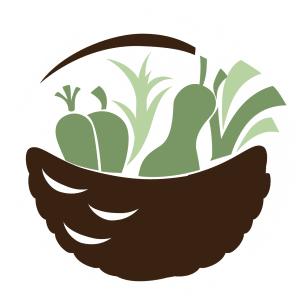Sustainability
Our journey towards a Sustainable NAU
Campus Dining’s sustainability journey started well over 10 years ago with a simple idea of going tray-less and since then has never stopped! Throughout the years we’ve eliminated trays in dining halls, plastic bags, styrofoam, plastic straws, and plastic to-go containers in several locations. We currently have a full composting system in both our resident dining halls, a reusable container program at the majority of our retail locations and as of Fall 2018 we’ve committed to going straw-less as a campus. Additionally, we are able to work with several groups across campus including, Environmental Caucus, GreenJacks, Green NAU, Office of Sustainability, and other groups to maximize our impact campus-wide.
Learn more about our NAU Climate Action Plan.
Low Waste Fun Facts:
Did you know that recycling aluminum consumes 90% less energy than producing it from raw materials? Also, Aluminum can be recycled infinitely without losing its strength!
For most materials, the upstream impacts from extraction, manufacturing, distribution, and use can be 10 to 100 times more impactful than the end-of-life phase. Start with reducing waste generation. If you can’t do that, reuse! And if nothing else, recycle!
Flag Focus: By increasing diversion and preventing the generation of waste, Flagstaff can extend the life of the Cinder Lake Landfill, which is currently projected to close in 2054.
Did you know for every ton of solid waste produced locally, there are 71 tons of waste produced upstream from mining, manufacturing, and the distribution of products?
Composting lowers greenhouse gases by improving carbon sequestration in the soil and by preventing methane emissions through aerobic decomposition, as methane-producing microbes are not active in the presence of oxygen.
Food loss and waste generate an estimated 8-10 percent of global greenhouse gas emissions.
Waste reduction supports the NAU Climate Action Plan by creating a Culture of Sustainability, Greenhouse Gas Accounting and Reporting, and cultivating a National Model of a Living Laboratory.
Minimizing Food Waste Accordion Open

Food waste is one of the biggest issues to solve, especially on a campus of over 30,000 students. For that reason, we are taking major steps to decrease food waste across all of our dining locations through a variety of initiatives.
Leanpath is a back-of-house program that measures food waste by type and allows our chefs to see patterns of food that are wasted which can then be adjusted when planning the week’s menus.
Food Recovery Network is an initiative that started in 2014, which utilizes student volunteers to pick up leftover food at dining locations and donate it to local Flagstaff food banks. This program is able to recover 4,000lbs of hot food every semester and donate it to those in need.
Compost machines are installed in both of our dining halls which collect both pre and post-consumer food waste. Everything from fruit trimmings, half-eaten pizza slices, and even the napkins and cups used in resident dining locations are composted diverting over 300,000 lbs of food waste each year and turned into the soil which is then used for the NAU campus.
Louie’s Leftovers is our newest program to minimize food waste at NAU catered events. The program allows for event hosts to notify students about leftover food after events through the NAUgo app creating an avenue for student’s with food insecurities to be notified about where to find food on campus.
Responsible Sourcing Accordion Closed

Campus Dining makes a great effort to include locally sourced, organic, whole foods whenever possible.
Local Ingredients- Sterns, our produce provider, offers local items when available and in-season. Being that in Arizona the growing season lines up with the academic year, we are able to source from over a dozen local producers when school is in session.
Open-Air Market– A small scale farmers market held every semester here at NAU. Open Air Markets take place on the union pedway and feature locally grown and often organic or fair-trade products.
Supporting Local Business- Campus Dining supports several Flagstaff-based businesses such as Village Baker, Tortilla Lady, and RisingHy.
MSC Certified Seafood- All seafood used across campus is sourced from certified sustainable fisheries.
Cage-Free Eggs- All eggs used across campus are certified cage-free eggs.
Sustainable Coffee and Tea– can be found in most of our coffee locations across campus like Bean and Beaker, Scholar’s Corner, Jazzman’s, Green Scene Cafe, Coffee & Bagels, and Einstein’s.
PETA Report Card– We take pride in offering plant-based options in just about every dining location and having earned an A+ rating by PETA2’s Vegan Report Card.
Eco-Footprint Reduction Accordion Closed

Though all of our sustainability efforts aim to minimize our environmental footprint, NAU Campus Dining has made intentional efforts to visibly minimize our usage of plastic disposables.
USEFULL– our reusable container program, allows customers to minimize their single-use disposable waste in to-go boxes and cups.
Strawless- In Fall 2018, we removed plastic straws from all dining locations and compostable straws are available upon request only reducing our use of straws by 87% (in the first semester).
Sustainable Catering– our catering program has taken steps to minimize plastic disposables by making reusable dishware a standard in University Union events and allowing reusable containers to be used for box lunches as well.
Sustainability FAQ’s
Lean Path and Food Recovery Network Accordion Closed
What is Leanpath and how does it help reduce food waste?
Leanpath is used in both of our dining halls to help chefs adjust portion sizes and minimize food waste in these all-you-care-to-eat locations. Every time chefs throw out an item they must weigh and record the item, this process helps identify patterns of food types that are thrown out. We have been using this program since 2012 and have reduced pre-consumer waste by more than 20%. For more information on how the Leanpath program works visit: https://www.leanpath.com/
Composting Accordion Closed
Where does the wasted food go after its composted?
You may notice that we do not have trash cans in either the Dub or the Hot Spot dining halls. This is because everything we serve (including our napkins) are compostable. After you put your finished plate on our dish conveyer belt, the leftover turned gets processed into ready-to-use soil additive. This process is completed with the use of a SOMAT system. Once the leftover is composted, it is then used on campus for gardening/landscaping and or is distributed to the community.
How does composting waste help the environment?
The benefits of composting are that instead of sending 300,000 lbs of food waste to landfills it is being composted and recycled into beautiful nutrient-rich soil which is then used around campus for landscaping, campus gardens, and given to the community! Food waste plays a huge role in polluting our environment as rotting food emits CO2 into the atmosphere. Our diverting 300,000lbs of food waste avoids 312.12metric tons of CO2 emissions (according to the EPA’s WARM model).
Does it take a lot of energy to compost the waste?
The machinery that we use is energy efficient and also recycles the water it uses.
When and why did NAU decide to start composting?
Campus Dining’s composting journey began back in 2012 with VeloComposting, which was a student-powered pilot of large scale composting on campus. Students on bikes with trailers would pick up kitchen scraps and coffee grounds from several dining locations across campus and drop it off on South Campus to be composted. In 2013, the program became a part of NAU’s University operations who continued the process of collecting compost. Then, in the Spring of 2015 NAU Campus Dining implemented a post-consumer composting machine in the Hot Spot, exponentially increasing the amount of food waste able to be composted. The success of the first composting unit lead to a second composting machine being installed at the DüB Dining District during it’s 2017 remodel. Together these composting systems allowed all trash cans to be removed from the Resident Dining Facilities and eliminate over 90% of the food waste every day.
Louie’s Leftovers Accordion Closed
What is Louie’s Leftovers?
Louie’s Leftovers is a program that reduces food waste and helps reduce food insecurity on campus by providing notifications through NAUgo letting students know when there is leftover food at catered campus events. The food must be eaten at the event but is available on a first come first serve basis to anyone who is hungry.
How do I sign up to receive notifications?
You can sign up to receive notifications on the NAUgo app! Check out our step by step guide to sign up for the processes.
Local Sourcing Accordion Closed
What does Campus Dining consider local?
Being that we are at 7,000 feet in elevation, it is a bit harder to find farms in the Flagstaff area so all of Arizona is included in our definition of “local”.
What are some farms we source from?
Through Sterns Produce, we receive local items from the following Arizona farms:
- Abby Lee Farms (Phoenix, AZ)
- AZ Farms Cheese Co. (Tempe, AZ)
- Blue Sky Organic Farms (Litchfield Park, AZ)
- Duncan Family Farms (Goodyear, AZ)
- Hickman’s Family farms (Buckeye, AZ)
- Merchant’s Garden (Tucson, AZ)
- Patagonia Orchards (Rio Rico, AZ)
- Pinnacle Farms (Waddell, AZ)
- Rousseau and Pacific (Tolleson, AZ)
- Sarah Farms (Yuma, AZ)
These are just a few of the more common farms we source receive produce from, check out Sterns Arizona Fresh Together to see a full list of Arizona farms sourced through Sterns: http://www.sternproduce.com/docs/Stern-ArizonaFresh_WEB.pdf
Does Campus Dining source from any local Flagstaff Businesses?
Yes! In fact, several items that can be found across campus are sourced from Flagstaff-based businesses including Village Baker, Tortilla Lady, and RisingHy hot sauces. Look out for these items in our retail locations as well as the Hot Spot and the DüB Dining District
Open Air Markets Accordion Closed
What is an Open-Air Market?
The Open-Air Market is a small scale farmers market held every semester on NAU’s Union Pedway. The market features a variety locally grown and often organic or fair-trade products that can be purchased using your meal plan! Local Flagstaff vendors are also invited to participate. To learn more about the markets and upcoming dates visit: https://in.nau.edu/dining/open-air-market/
How can I volunteer at the market or become a vendor?
Please reach out to Jacob Vanetsky for more information on how to become involved with the Open Air Markets:
Or click the link below to sign up as a vendor for Fall 2025:
Sustainable Seafood Accordion Closed
How is our Seafood sustainable?
All of the seafood Campus Dining uses is sourced exclusively though sources who are MSC Certified. To learn more about MSC certification visit:https://www.msc.org/home.
Sustainable Coffee and Tea Brands Accordion Closed
Is there sustainable coffee and tea on campus?
Yes, here are a few brands to look out for across campus that are Fair Trade, Direct Trade, or Rainforest Alliance certified!
Aspretto Coffee which can be found at the Hot Spot and the DüB Dining District (http://aspretto.sodexo.com/home.html) is Fair Trade certified.
Intelligentsia Coffee which can be purchased at Bean and Beaker, Essential Blends, and Green Scene Cafe is Direct Trade certified (https://www.intelligentsiacoffee.com/coffee/direct-trade).
Tazo Teas which are served at Bean and Beaker, Green Scene, Scholars’ Corner, 1899, Jazzman’s, and G’s Deli is certified by the Rainforest Alliance (https://www.unilever.com/sustainable-living/reducing-environmental-impact/sustainable-sourcing/sustainable-tea-leading-the-industry/).
Caribou Coffee can be found at Coffee & Bagels and Einstein’s, this brand is Rainforest Alliance Certified (https://www.rainforest-alliance.org/find-certified/caribou)
Vegan or Vegetarian Options Accordion Closed
Does NAU provide ample plant-based options?
Yes, in fact, we’ve received an A+ rating from PETA2’s Vegan report card 2 years in a row showing our dedication to making sure that plenty of plant-based options are available across campus!
Where can I find Vegan and Vegetarian options?
Nearly all of our dining locations offer a variety of vegan and vegetarian entrees or items that can easily be made vegan with a simple request. Here is a link to our Campus Dining Plant-Based Food Guide.
USEFULL Accordion Closed
What is USEFULL?
The USEFULL reusable container program was implemented in collaboration with the Green Fund in the Spring of 2024. The goal of the program is to reduce single-use disposable waste in our retail dining locations. In our first year, we had over 100,000 uses in just 3 dining locations. Since it’s implementation, NAU Campus Dining’s operation has become the largest university (by population) using the program. For more information on USEFULL visit: usefull.us
Sustainable Catering Accordion Closed
How is NAU Catering becoming more sustainable?
Our catering program has taken steps to minimize plastic disposables by making reusable dishware a standard in University Union events Instead of using plastic disposables at catered events, reusable dishware can be requested in events outside of the University Union for no additional charge. Catering also offers compostable service ware for no-frills events however, the customer is responsible for taking care of the waste. For boxed lunch events, catering offers sustainable box-lunches in reusable containers (all utensils and cups are also reusable with this option). Behind the scenes, catering has also replaced disposable gel burners with refillable burners! Eco-Burners, allow us to minimize waste and get the most usage out of our fuel tanks!
NAU Strawless Initiative Accordion Closed
When did the Strawless Initiative Begin?
In Fall 2018, we removed plastic straws from all dining locations and compostable straws are available upon request only reducing our use of straws by 87% (in the first semester).
Why did NAU Choose to go strawless?
Campus Dining chose to eliminate plastic straws as they are small and often unnecessary plastic disposable that causes a great amount of harm to the environment. We also saw this as an opportunity to get consumers to think about if they really need some of the disposables they use, sometimes several times a day. Removing plastic straws from our operations has eliminated about 1 million plastic straws from our waste stream. We still provide compostable straws upon request to be mindful of our peers who may need a straw for medical reasons.
Get Involved
We’re always looking for help from our student body to help continue making an impact across NAU. If you’re interested in making a difference, consider volunteering with the Food Recovery Network or the Open Air Markets.
Volunteer with Food Recovery Network:
Email FlagstaffFoodRecoveryNetwork@gmail.com to get involved.
Join the Open Air Market:
For more information on how to participate, contact Jacob Vanetsky at:
Interested in becoming a vendor? Sign up for Fall 2025 here:
Fall 2025: Open Air Market Vendor Sign-Up